12 start with F start with F
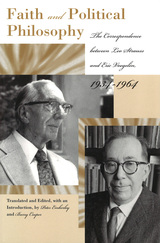
Faith and Political Philosophy consists of fifty-three letters between Leo Strauss and Eric Voegelin, two of the most important political theorists of the twentieth century. In this correspondence, Strauss and Voegelin explore the nature of their similarities and differences, offering insightful observations about one another's work, about the state of the discipline, and about the influences working on them. The letters shed light on many assumptions made in their published writings, often with an openness that removes all vestiges of uncertainty.
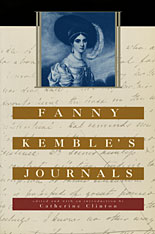
Henry James called Fanny Kemble’s autobiography “one of the most animated autobiographies in the language.” Born into the first family of the British stage, Fanny Kemble was one of the most famous woman writers of the English-speaking world, a best-selling author on both sides of the Atlantic. In addition to her essays, poetry, plays, and a novel, Kemble published six works of memoir, eleven volumes in all, covering her life, which began in the first decade of the nineteenth century and ended in the last. Her autobiographical writings are compelling evidence of Kemble’s wit and talent, and they also offer a dazzling overview of her transatlantic world.
Kemble kept up a running commentary in letters and diaries on the great issues of her day. The selections here provide a narrative thread tracing her intellectual development—especially her views on women and slavery. She is famous for her identification with abolitionism, and many excerpts reveal her passionate views on the subject. The selections show a life full of personal tragedy as well as professional achievements. An elegant introduction provides a context for appreciating Kemble’s remarkable life and achievements, and the excerpts from her journals allow her, once again, to speak for herself.
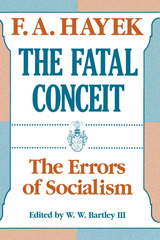
"The achievement of The Fatal Conceit is that it freshly shows why socialism must be refuted rather than merely dismissed—then refutes it again."—David R. Henderson, Fortune.
"Fascinating. . . . The energy and precision with which Mr. Hayek sweeps away his opposition is impressive."—Edward H. Crane, Wall Street Journal
F. A. Hayek is considered a pioneer in monetary theory, the preeminent proponent of the libertarian philosophy, and the ideological mentor of the Reagan and Thatcher "revolutions."
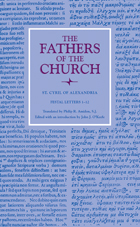
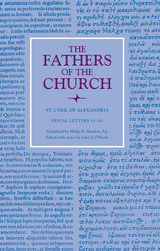
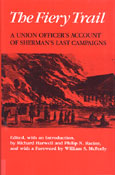

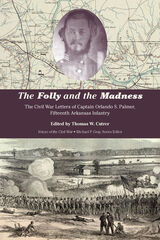
Though he initially felt Americans would see “the folly and the madness” of going to war, Orlando enlisted as a private in what would become Company H of the First (later Fifteenth) Arkansas Infantry, informing his sister that he had volunteered “not for position, not for a name, but from patriotic motivation.” However, he was ambitious enough to secure an appointment as Maj. Gen. William Joseph Hardee’s personal secretary; he then rose to become his regiment’s sergeant major, his company’s first lieutenant, and later captain and brigade adjutant. Soldier letters typically report only what can be observed at the company level, but Palmer’s high-ranking position offers a unique view of strategic rather than tactical operations.
Palmer’s letters are not all related to his military experience, though, and the narrative is enhanced by his nuanced reflections on courtship customs and personal relationships. For instance, Palmer frequently attempts to entertain Missie with witticisms and tales of his active romantic life: “We have so much to do,” he quips, “that we have no time to do anything save to visit the women. I am in love with several dozen of them and am having
a huge time generally.”
The Folly and the Madness adds depth to the genre of Civil War correspondence and provides a window into the lives of ordinary southerners at an extraordinary time.
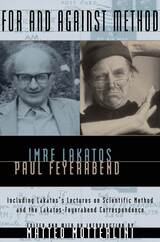
For and Against Method opens with an imaginary dialogue between Lakatos and Feyerabend, which Matteo Motterlini has constructed, based on their published works, to synthesize their positions and arguments. Part one presents the transcripts of the last lectures on method that Lakatos delivered. Part two, Feyerabend's response, consists of a previously published essay on anarchism, which began the attack on Lakatos's position that Feyerabend later continued in Against Method. The third and longest section consists of the correspondence Lakatos and Feyerabend exchanged on method and many other issues and ideas, as well as the events of their daily lives, between 1968 and Lakatos's death in 1974.
The delight Lakatos and Feyerabend took in philosophical debate, and the relish with which they sparred, come to life again in For and Against Method, making it essential and lively reading for anyone interested in these two fascinating and controversial thinkers and their immense contributions to philosophy of science.
"The writings in this volume are of considerable intellectual importance, and will be of great interest to anyone concerned with the development of the philosophical views of Lakatos and Feyerabend, or indeed with the development of philosophy of science in general during this crucial period."—Donald Gillies, British Journal for the Philosophy of Science (on the Italian edition)
"A stimulating exchange of letters between two philosophical entertainers."—Tariq Ali, The Independent
Imre Lakatos (1922-1974) was professor of logic at the London School of Economics. He was the author of Proofs and Refutations and the two-volume Philosophical Papers. Paul Feyerabend (1924-1994) was educated in Europe and held numerous teaching posts throughout his career. Among his books are Against Method; Science in a Free Society; Farewell to Reason; and Killing Time: The Autobiography of Paul Feyerabend, the last published by the University of Chicago Press.
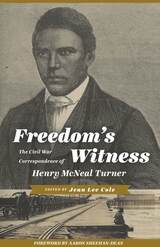
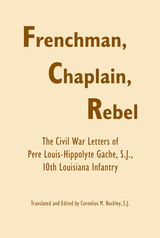
The American Civil War through the eyes of a French Jesuit chaplain.
"This book has a tantalizing quality, and it certainly is fresh literature for those who have watched the story of the Civil War unfold. . . . One cannot help but marvel at the research undertaken by Fr. Buckley. These letters of Fr. Gache cover such subjects as the duties of a chaplain, the lack of stimulating conversation in camp, whiskey as medication for diarrhea, the chaplain’s uniform, the oversupply of Catholic chaplains, descriptions of battles—Chancellorsville, Fredericksburg—chaplains as prisoners of war, the possibility of General Lee being chosen as the second president of the Confederacy, making candles for the alter and bleaching wax, procuring sacramental wine, conflicts with Protestant preachers, and the surrender of Richmond. Such subjects allow the personality and character of Hippolyte to stand out. . . . [The book] is interesting reading for all who love and admire the Jesuits. Its wealth of information makes it a must for others whose concern is the Confederate soldier and his God."
—Journal of Southern History

READERS
Browse our collection.
PUBLISHERS
See BiblioVault's publisher services.
STUDENT SERVICES
Files for college accessibility offices.
UChicago Accessibility Resources
home | accessibility | search | about | contact us
BiblioVault ® 2001 - 2024
The University of Chicago Press









